Understanding Garbage Separation in Japan: A Workshop in Aso City
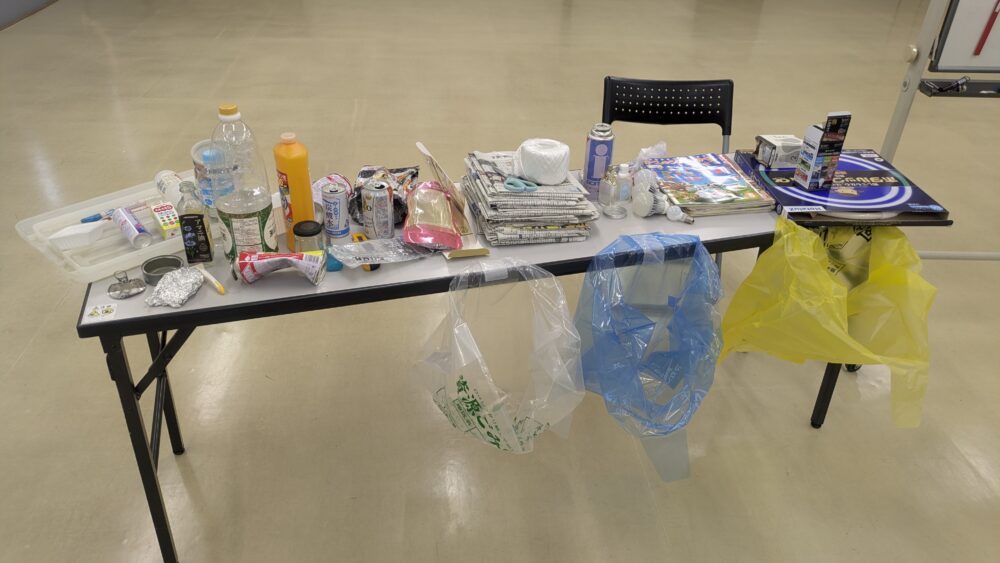
One of the challenges many foreign residents in Japan face is garbage separation.
Japan’s waste sorting system is known for being strict and complicated—and what makes it even more confusing is that the rules vary between municipalities. What’s more, most of the information is available only in Japanese.
To support foreign residents, our April “Nihongo Asobiba” workshop focused on how to separate garbage in Japan!
What is Nihongo Asobiba?
“Nihongo Asobiba” is an event designed for foreign residents living in Aso City who use Japanese as a second language. It’s a fun and friendly space where participants can learn about Japanese culture and life in easy-to-understand Japanese.
How Garbage Separation Works in Aso City
In Aso City, there are three types of household garbage bags:
-
Solid fuel garbage (for burnable waste used for making fuel)
-
Recyclable garbage
-
Non-burnable garbage
For example, do you know which bag to use for PET bottles (plastic drink bottles)?
✅ The answer: Recyclable garbage!
But be careful—PET bottles must be put out on a specific collection day, and separately from other recyclables.
Yes, that’s another tricky part: You can’t throw garbage out every day!
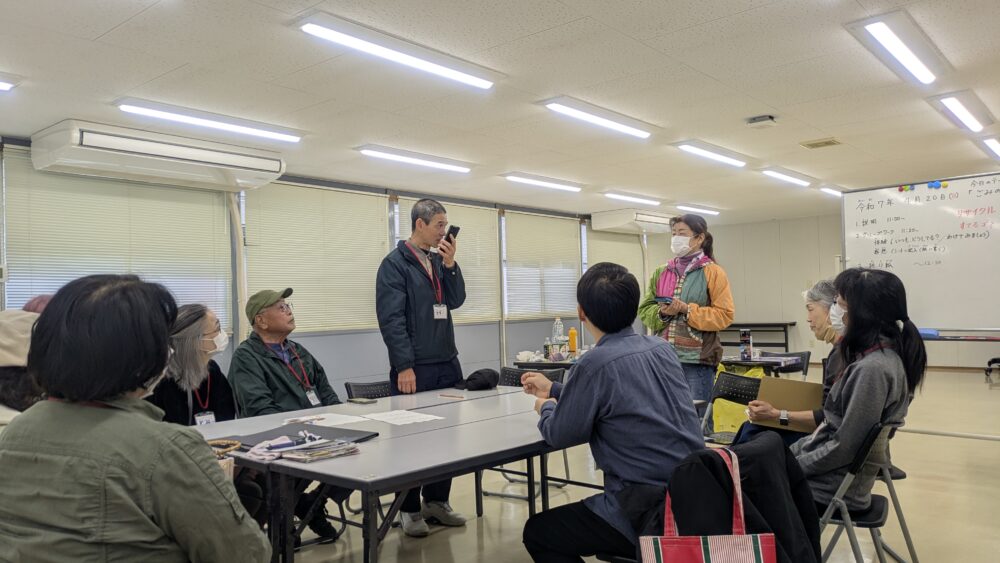
One participant shared that he didn’t know the correct day to put out PET bottles—and ended up keeping PET bottle waste at home for a whole year!💦
Because the instructions were only in Japanese, he didn’t know what to do and felt very frustrated.
📚 What We Did in the Workshop
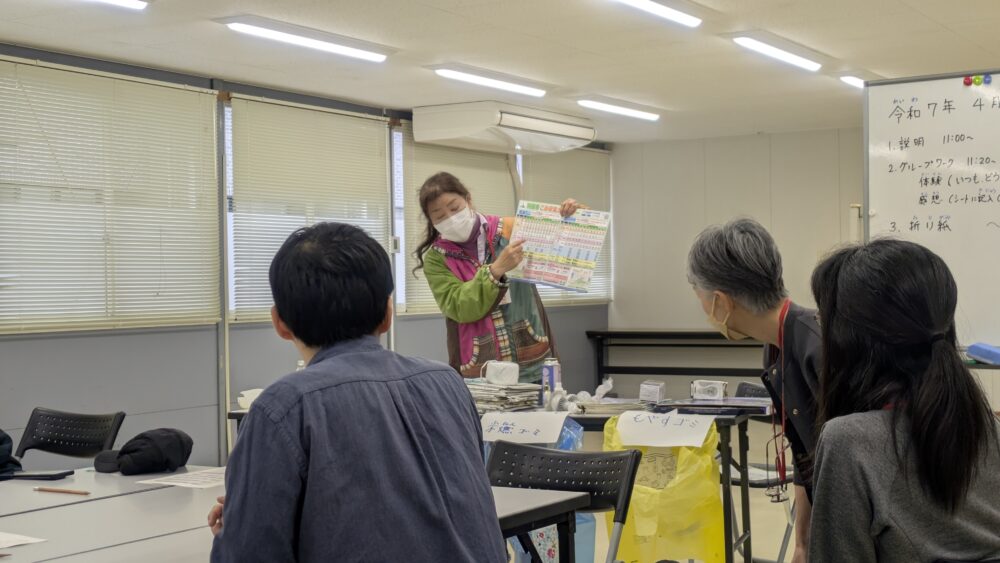
First, we explained Aso’s garbage separation rules in easy Japanese and English.
We gave examples like how to dispose of LED light bulbs:
-
Small round LED bulbs → Non-burnable garbage
-
Large circular fluorescent lights → Must be brought to city hall
Yes—the size and shape of an item can change how you dispose of it!
After learning the basics, participants did a hands-on group activity to try sorting different items. Even after learning the rules, many people still wondered, “Am I doing this right?”
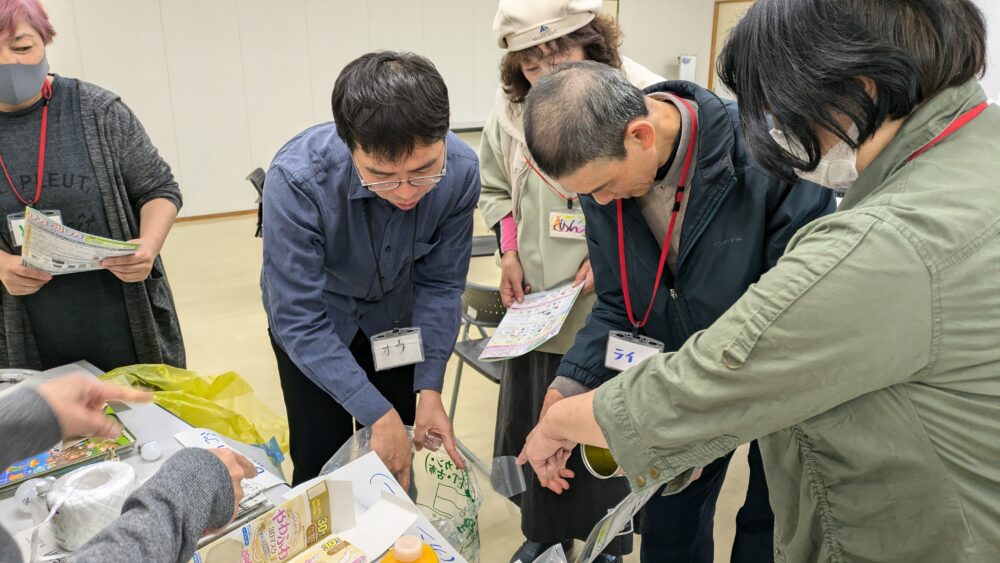
By the end of the event, we believe everyone felt more confident about how to handle garbage in Japan!
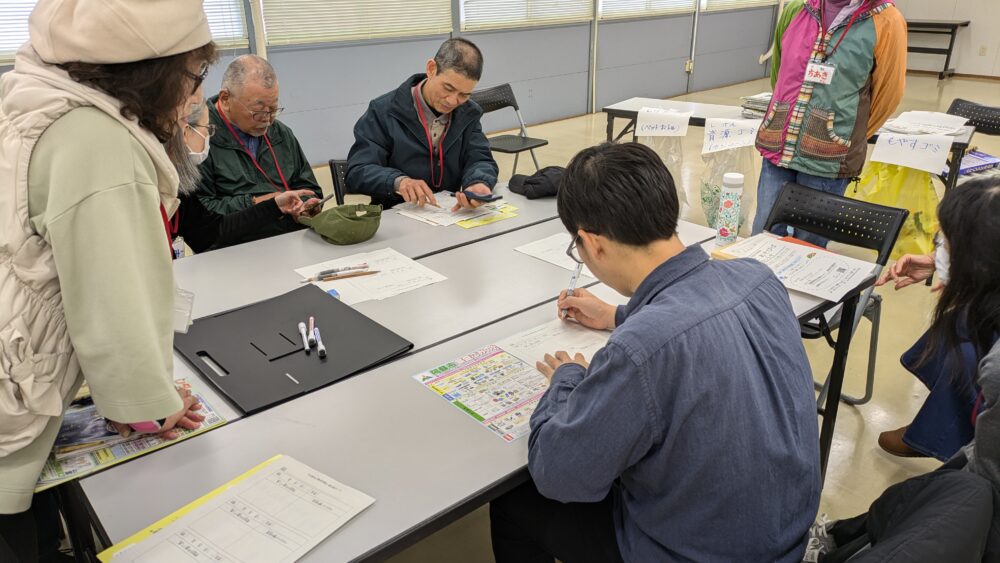
📢 Next Topic: Disaster Preparedness – Wed May 28th
To attend please email oliver@aso-denku.jp
Japan is a country where natural disasters—especially earthquakes—are common. It’s essential to have basic knowledge about how to stay safe.
Our next “Nihongo Asobiba” workshop will focus on disaster preparedness.
Do you know what to do when a big earthquake hits?
If you live or work in Aso City—or are just interested—please join us!

